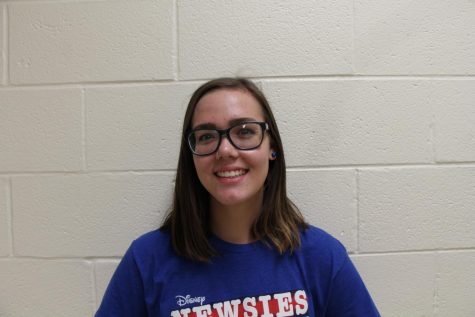District anticipates $6.9 million surplus
October 12, 2018
District 202 has predicted a budget surplus of approximately $6.9 million dollars by the end of the 2018-2019 school year.
“We worked very hard for about 10 years to cut expenses, control costs, and operate very efficiently,” Tom Hernandez, Director of Community Relations, said.
The surplus exists due to the state of Illinois approving a new formula for education funding that “considers a district’s actual needs,” as stated by Hernandez. If the anticipated surplus does occur, this will be the largest surplus since the recession in 2008.
The district is saving any surplus money into reserves. The money acts as a safety net in case the budget is cut by the state and to protect against state funding being reduced.
“[It happens] almost every year, causing us to have to dip into our savings to pay bills and operate,” Hernadez said.
There is over 175 days “cash-on-hand” in the reserves, according to Lane Abrell, superintendent.
“This means that we would be able to continue to have school for over 175 days if the state stopped giving schools any assistance,” he said, “To run the district every day during the school year costs $700,000 a day.”
With almost one year’s worth of reserves already saved, the predicted budget surplus could be used in various ways.
“[One] benefit would be looking to see if every student can have their own laptop or tablet of some sort. That or either they buy a set of computers to leave in the room for us to use every period,” Deb Polhmann, union representative, said.
As times change, it is important for the district to change with them according to John Smith, AP Government teacher.
“We need to be ahead instead of behind. We’ve been a district that has been catching up for too long; we need to be a district that is leading the way,” Smith said.
According to Smith, looking into the cost should be on a five-year plan of some kind, seeing that there is already money being saved.
“We have the money to do it. There is no reason that within five years we can’t have every high school student on a laptop or tablet,” Smith said.
The district does have a plan to make a one-to-one move, based on the results of the current pilot programs in one classroom of each school.
Another area that the district has deemed “in need of attention” is all-day kindergarten according to Abrell.
“The district does not offer all-day kindergarten to all students. We would like to be able to offer for all 14,000 students eligible.”
Another option is more faculty and staff to have a salary boost or new members could be hired.
Polhmann believes that hiring more staff would decrease classroom size back to around 20-24 students which would, in turn, help with easier communication between teachers and students.
“It would be nice to have more staff in each department, so that we could reduce the classroom size, because it is more about [the students’] education,” Polhmann said.
The decision of what will be done with the surplus is up to the Board of Education and as of now the use of the anticipated surplus is unknown. Future surpluses are unpredictable according to Hernandaz.
“We cannot control them, yet they significantly impact our revenue,” Hernandez said.



